- This event has passed.
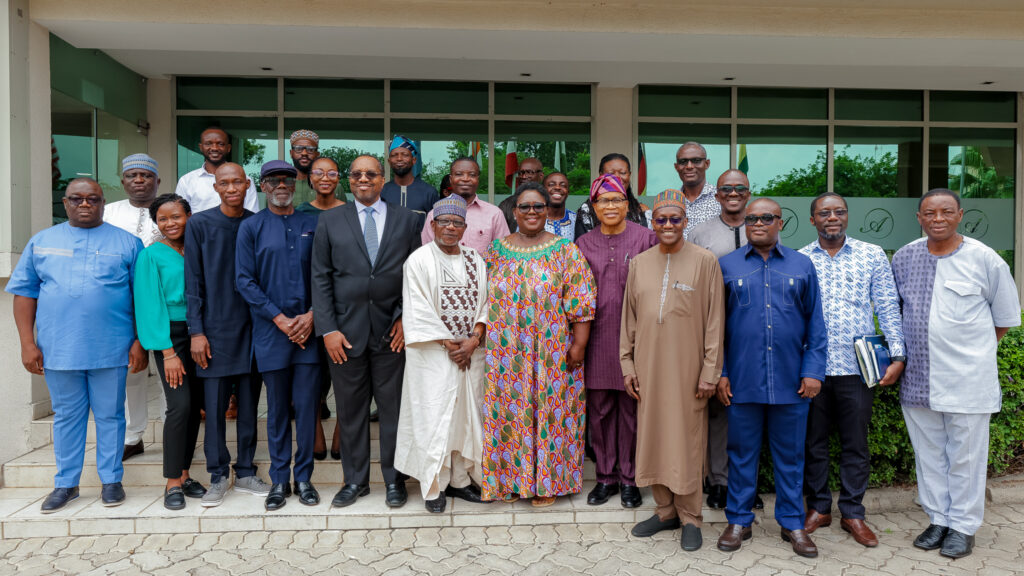
The Social Science Research Council (SSRC)’s African Peacebuilding Network (APN) and Next Generation Social Sciences in Africa (Next Gen) program co-hosted a high-level policy dialogue on “Understanding the Geopolitical and Strategic Changes in West Africa: Emerging Challenges and the Future of ECOWAS”, in partnership with the West Africa Network for Peacebuilding (WANEP) and Conflict Relief Network (CORN) West Africa. The high-level policy dialogue took place in Accra, Ghana on April 15 and 16, 2025. It convened representatives from the Economic Community of West African States (ECOWAS), civil society organizations (CSOs), analysts, researchers, and policy practitioners to generate and mobilize collective inputs based on the analyses of emerging geostrategic and geopolitical challenges in the region, ahead of the ECOWAS Special Summit on the Future or Regional Integration in West Africa. The dialogue also explored emerging challenges posed by unprecedented unconstitutional changes in governance (UCGs) across the region.
The two-day policy dialogue began with opening remarks from the co-organizers: Dr. Cyril Obi (Program Director, APN and Next Gen), Mrs. Levinia Addae-Mensah (Executive Director, WANEP), and Dr. Timipere Allison (Executive Director, CORN West Africa).
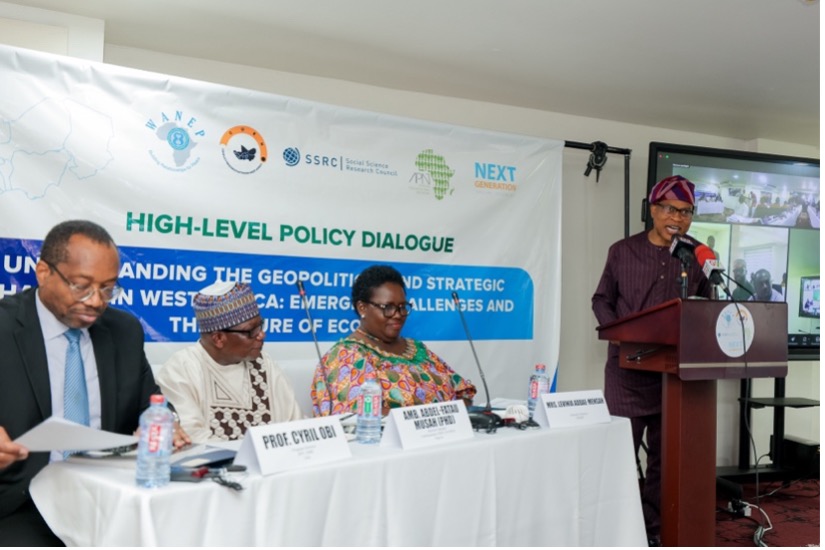
Emphasizing the need for a fundamental shift in ECOWAS’ approach to regional and political governance, development, peace, and security in West Africa—particularly amidst the unprecedented changes reshaping the global landscape—Dr. Obi posed a critical question: “How can we transform this position of being marginalized to a position of being a contributor or producer of knowledge?” He pointed to the reconfiguration of global alliances, noting the changing roles of traditional partners such as France and the United States, and the growing influence of emerging actors including Russia, China, and the Gulf states. Against this backdrop, he urged participants to reconceptualize a more inclusive and self-determined future for the region within the context of a rapidly evolving global order. Dr. Obi also stressed the importance of a measured and constructive response from ECOWAS, particularly in light of the recent ‘Sahel exit’, which has exposed deepening regional divisions. In conclusion, he called for collective efforts to resolve what he described as “family problems” within the West African region. Despite internal disagreements, he maintained that sustainable solutions can only emerge from within—through cooperation, mutual understanding, and a renewed commitment to regional solidarity.
Drawing the attention of participants to the rapidly changing landscape of governance in West Africa, Mrs. Levinia Addae-Mensah urged participants to think differently, to reformulate and reorganize new regional partnerships to address evolving challenges, including increasing fragmentation of the political state, criminal violence, UCGs, and climate change.
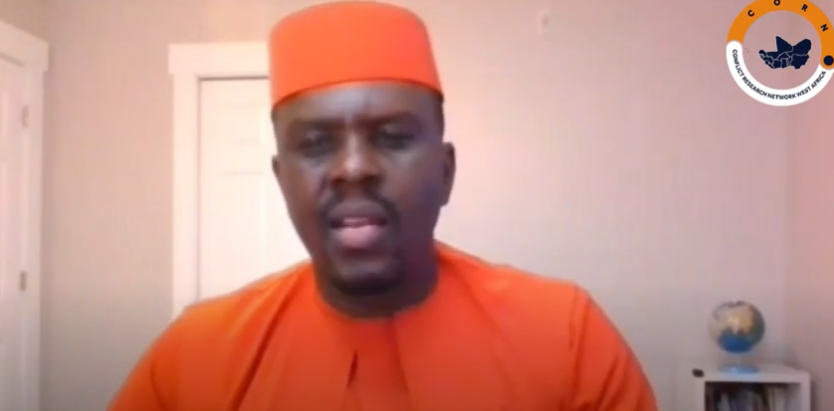
Also acknowledging the need to address the future of ECOWAS was Dr. Timipere Allison, exhorted the community of stakeholders at the dialogue to “explore innovative approaches to reimagine a more inclusive, resilient, and responsive West Africa.”
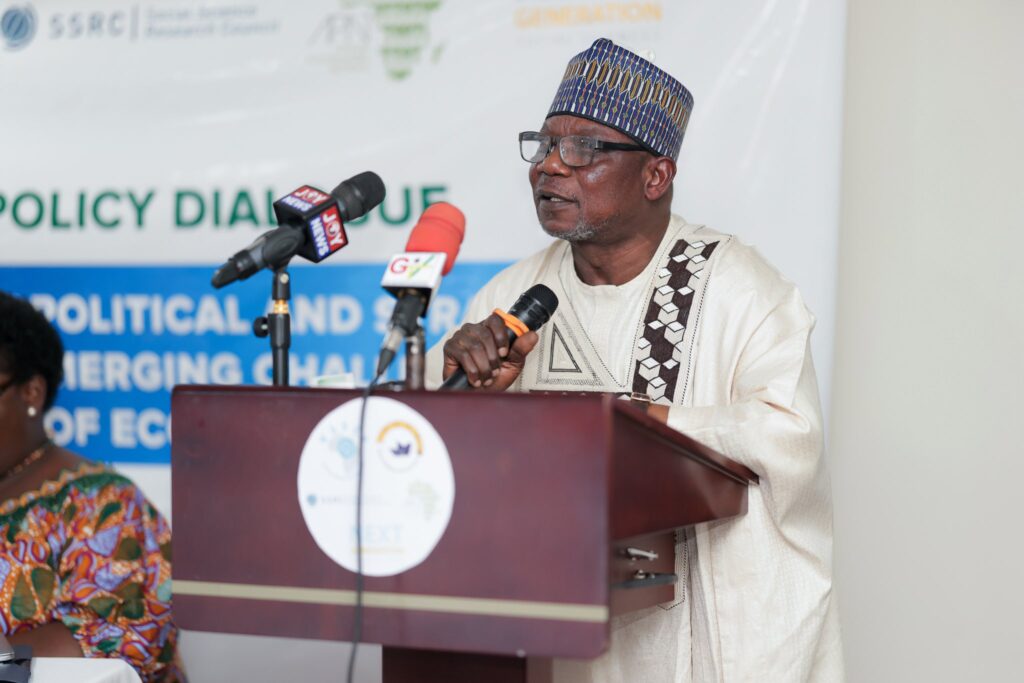
Following the opening remarks, Ambassador Dr. Abdel-Fatau Musah, Commissioner for Political Affairs, Peace and Security at the ECOWAS Commission, delivered the keynote speech. He provided a reflective summary of the regional bloc’s transformation since its pre-1975 inception through four overarching pillars: The Geostrategic and Geopolitical shifts, as well as internal factors that shaped ECOWAS’ evolution; The Successes and Challenges of Regional Integration; ECOWAS and its Relations with the Breakaway Sahelian Bloc; ECOWAS@50 and The Special Summit on The Future of Regional Integration in West Africa.
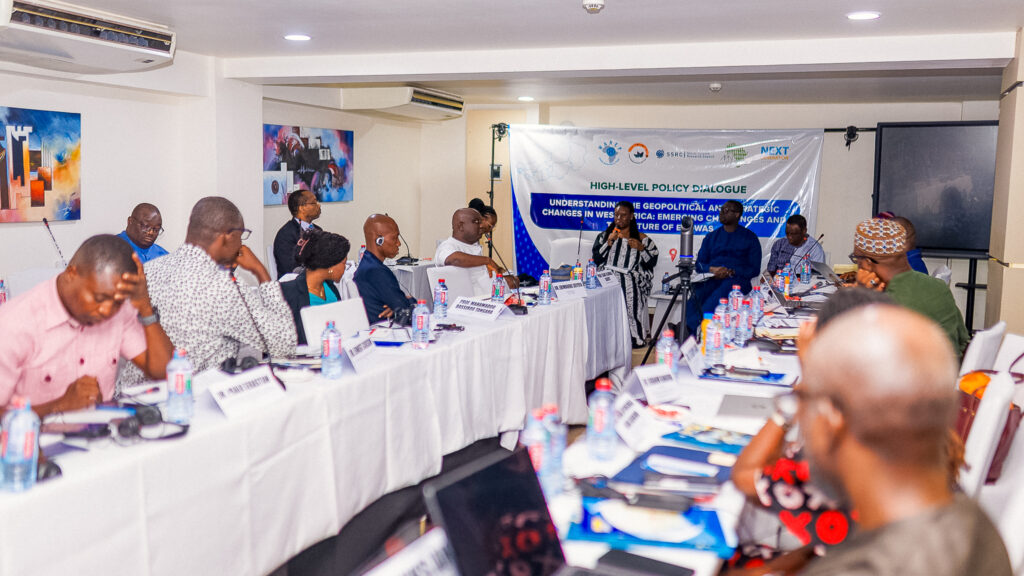
Subsequently, two panel discussions were held. The first panel of the event, ‘Understand the Geopolitical and Strategic Changes in West Africa,’ was moderated by His Excellency Colonel Larry Gbevlo-Lartey, Ghana’s Special Envoy to the Alliance of Sahelian States (AES). The presentations featured the following panelists: Prof. Isaac Olawale Albert, University of Ibadan, Mr. Ebenezer Asiedu, Head, Democracy and Good Governance Division, Political Affairs, Peace and Security, ECOWAS, Dr. Linda Oppongmaa Akua Darkwa, Senior Research Fellow, LECIAD, University of Ghana, Dr. Rhuks Ako, Independent Researcher (APN CWG 2014-16).
Their presentations focused on the following issues: shifting landscape of partnerships in West Africa, especially from West to non-Western actors like China, Russia, Türkiye, Saudi Arabia, and Gulf States; opportunities for ECOWAS, AES, and regional integration amidst emergence of multipolar world order; and the implications and consequences of UCG on the region’s collective security architecture, democratic values, and human rights.
The second session, ‘Conflict Transformation, Development and Peace in West Africa,’ moderated by Dr. Ebimboere Seiyefa, Head of Research at CORN-West Africa. The panelists included three former APN and Next Gen fellowship award recipients: Dr. Titilope Ajayi, Institute for Security Studies (ISS), Nairobi, Dr. Hippolyt Pul, Executive Director, Institute for Peace and Development, Tamale, and Prof. Ibrahim Bangura, Fourah Bay College, University of Sierra Leone.
Their presentations focused on recent UCGs, tacit acceptance of military governments by AES nationals, operational and structural strategies implemented on the regional level, and key challenges. The panel further assessed potential strategic partnerships that could help ECOWAS better implement its mandate of development and security and alternative solutions to prevent UCGs. The panelists emphasized the need to strengthen regional policies and democratic institutions (not limited to elections), prioritize human security and livelihoods of West Africans, and ensure consistent policy implementation among member states.
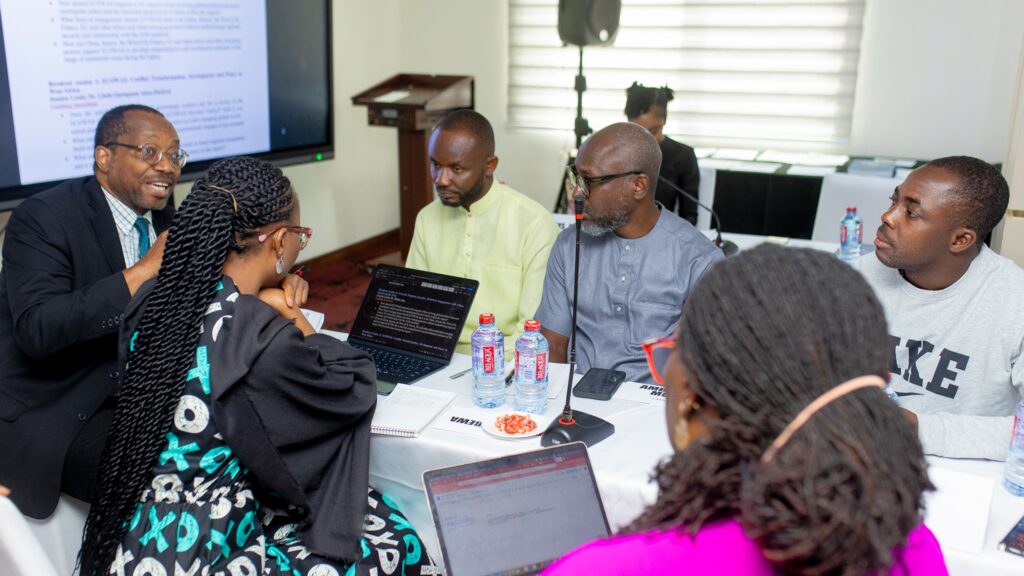
On Day 2, participants were divided into three breakout sessions, where three groups brainstormed recommendations that could serve as inputs for strengthening ECOWAS’ approach on the following critical challenges:
- Towards Regional Security: ECOWAS Engagement with the AES Bloc
- Towards Regional Security: ECOWAS Engagement with Middle and Emerging Powers (China, Russia, etc) and the West; and
- ECOWAS: Conflict Transformation, Development and Peace in West Africa
Key recommendations and reflections from the breakout sessions and event proceedings include but are not limited to the following:
- Rebuilding trust with AES states by encouraging bilateral diplomacy with countries the AES bloc remains open to such as Ghana and Senegal as well as pursuing multilateral engagements through the African Union (AU) and CSOs
- Bilateralism and partnership with AES to combat terrorism and violent extremism through strategic intelligence sharing and coordinated border patrols between ECOWAS and AES members, as well as neighboring border states
- A unified and preemptive strategic ECOWAS framework on regional security interests that clearly maps out the national interests of its member states as well as external influences and their interests in the region, and how these intersect with ECOWAS security and development objectives
- Institutional capacity-building of member states to better align domestic and foreign policies with broader ECOWAS security goals as well as bilateral and multilateral coordination with AES states, the West, and the East to ensure a unified and consistent regional approach.
- Proactive and consistent response from ECOWAS to both military and civilian forms of UCGs including constitutional manipulations and amendments designed to entrench incumbents in power
- Strengthening of civil society participation to ensure accountability, implementation of regional protocols, and serving as watchdogs against democratic backsliding
A more detailed list of recommendations can be found in this joint communique developed by the SSRC’s APN and Next Program, WANEP, and CORN West Africa.
The policy dialogue concluded with an overview of the discussions, followed by closing remarks from Mrs. Levina Addae-Mensah and Dr. Cyril Obi. Both extended their gratitude to the participants for an engaging two days of meaningful dialogue on the future of peace and security in West Africa. Several news media covered the event in connection to the ongoing ECOWAS@50 celebrations which occurred in Accra, Ghana.
Click below to view a recap of the high-level policy dialogue, news coverage, keynote speech, communique, and a detailed report of the event proceedings.

 Events
Events